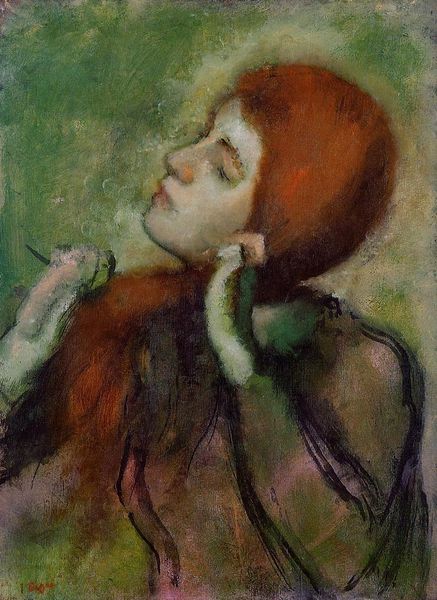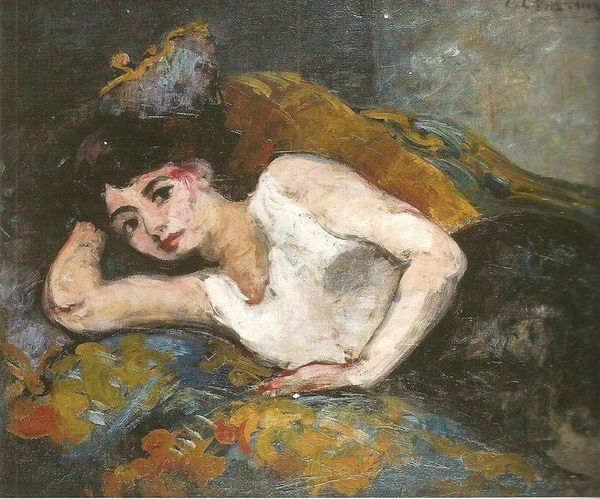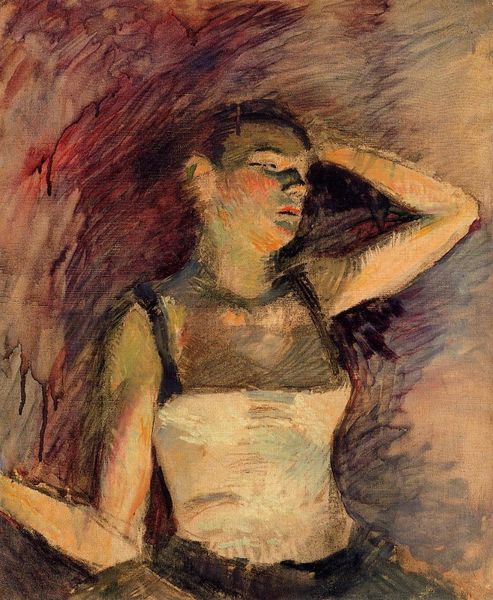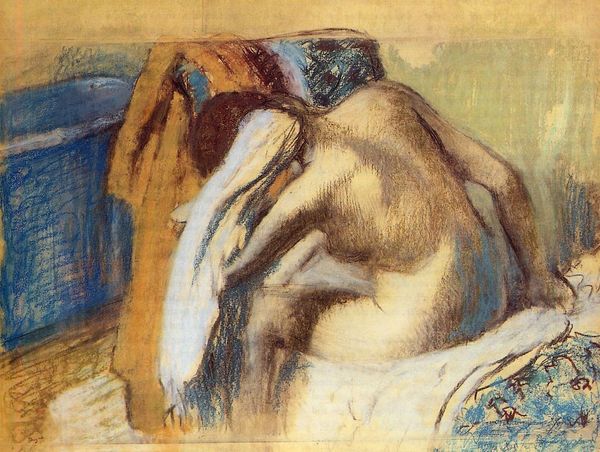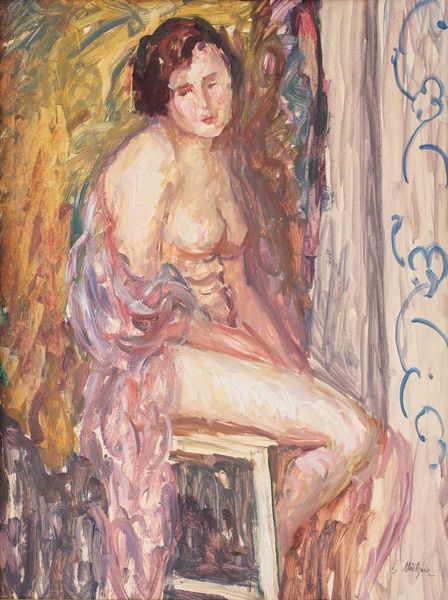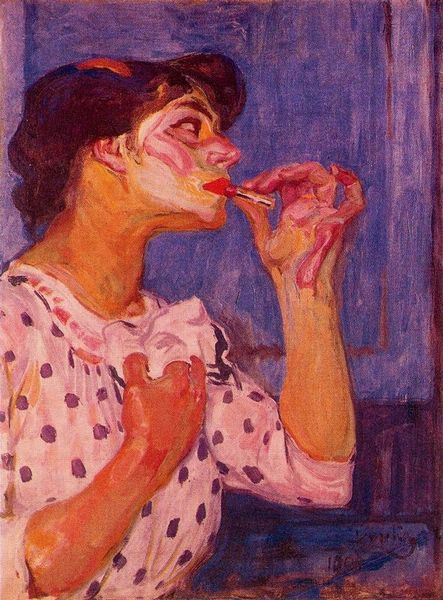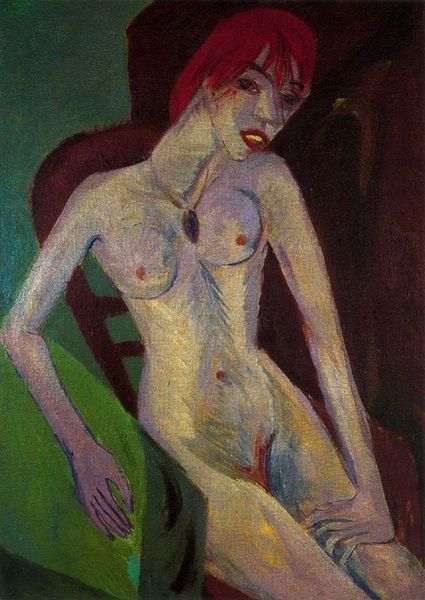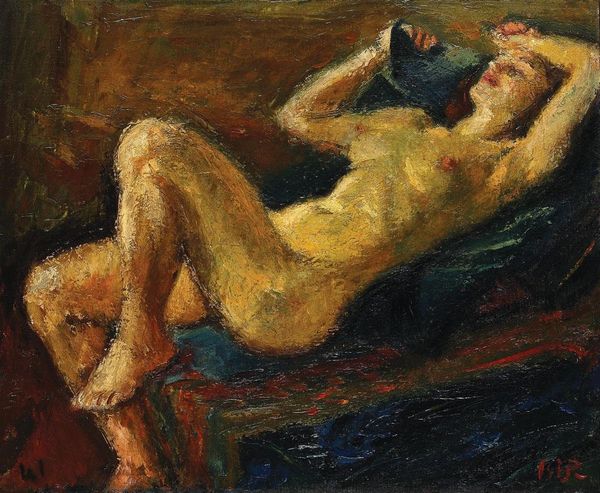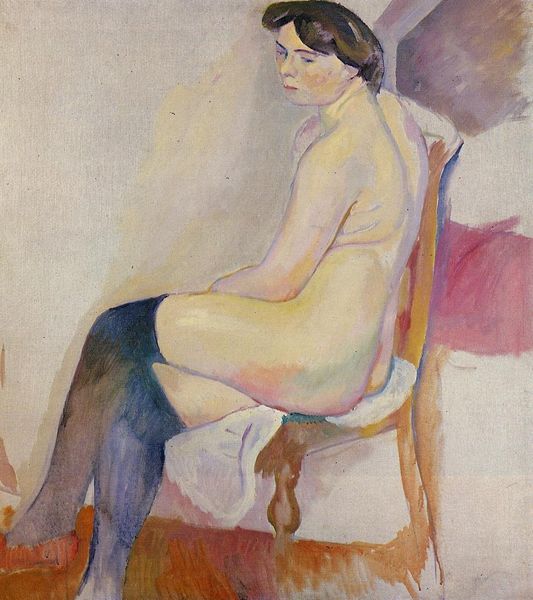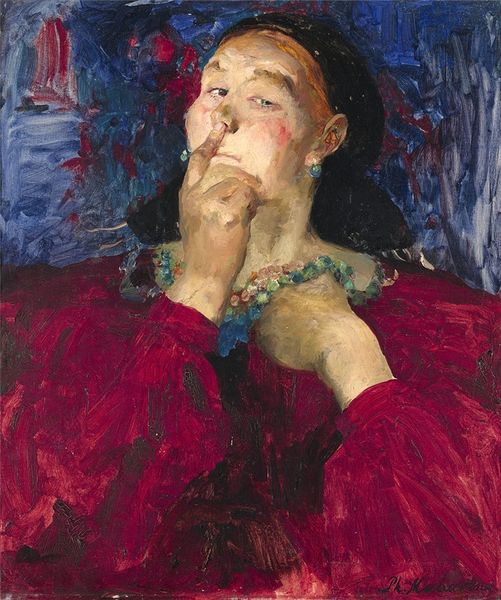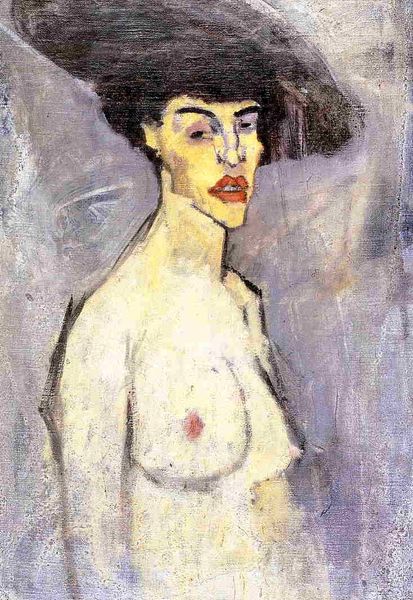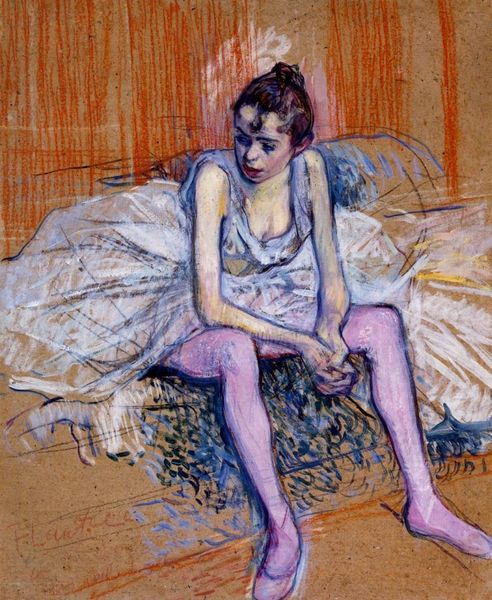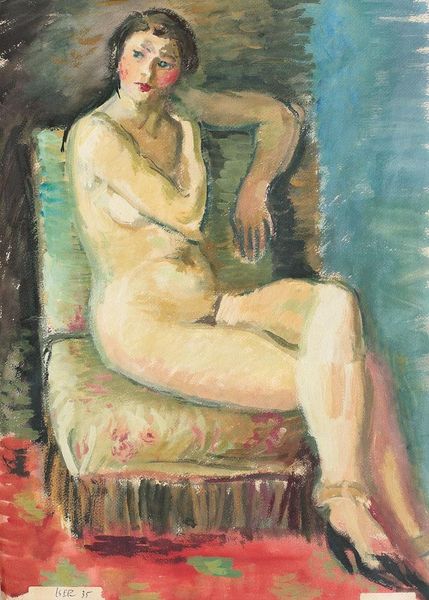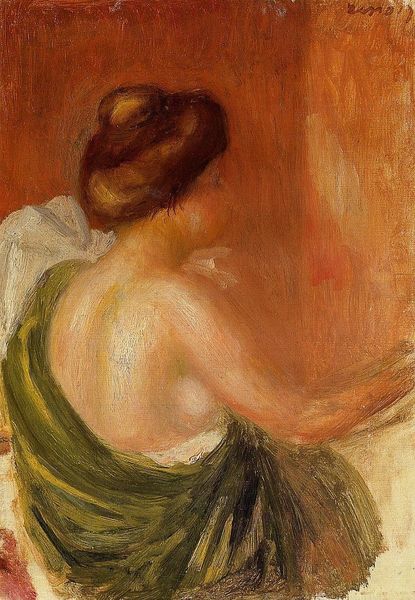
painting, oil-paint
#
portrait
#
self-portrait
#
painting
#
oil-paint
#
figuration
#
oil painting
#
intimism
#
expressionism
#
facial portrait
#
portrait art
#
fine art portrait
Copyright: Public domain US
Curator: Welcome! Today, we are observing "Lipstick," an oil-on-canvas work dating back to 1908, by František Kupka, currently residing at the Georges Pompidou Center. What are your initial thoughts? Editor: Well, I'm immediately struck by the woman's application of makeup and her concentrated expression. What materials do you find particularly compelling, considering Kupka's artistic choices? Curator: I'm most drawn to Kupka’s choice of oil paint, not only for its historical significance as a primary medium for portraiture, but how he seems to relish the materiality of it here. Observe how he builds the layers and captures the textures, but also consider what lipstick itself signifies. Editor: Interesting! The idea that lipstick becomes an object worth contemplation does disrupt traditional expectations, placing labor, materiality, and consumption together. It definitely calls into question conventional art boundaries. Is that what contributes to the expressionistic feel? Curator: In a way, yes. Consider the historical context of early 20th-century Europe. Industrialization and mass production were reshaping society. The woman’s adornment, mediated by mass produced makeup, becomes part of the art's statement about consumerism’s encroaching role. What labor is being displayed, and for what purpose? Is it being eroticized, made to appear trivial? Editor: That's a fascinating point! It forces us to confront the realities of labor, consumerism, and female identity within art itself, using this intimate painting as a reflection point. Thank you, this gives me a whole new perspective to consider. Curator: My pleasure! Seeing art through the lens of its material creation, its connection to broader society can truly enhance our experience.
Comments
No comments
Be the first to comment and join the conversation on the ultimate creative platform.
